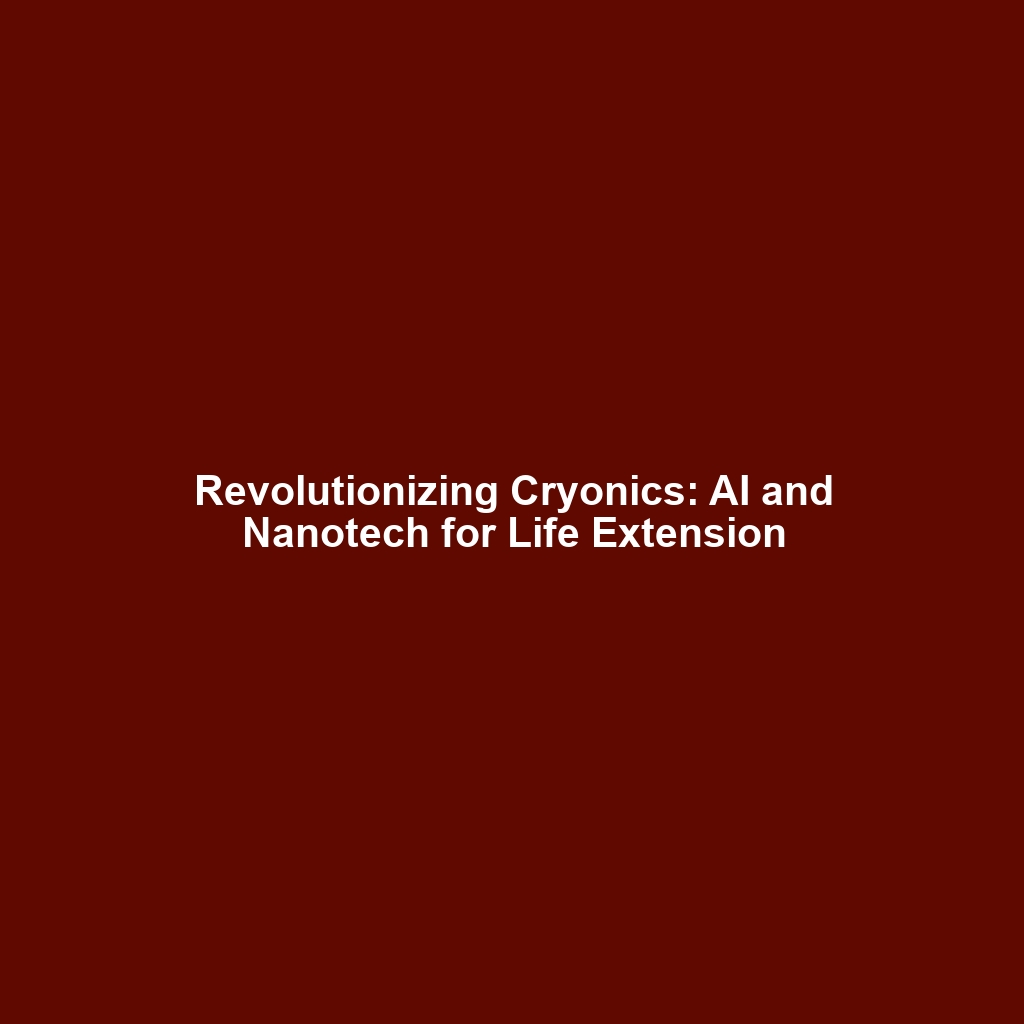Advanced AI and Nanotechnology: Pioneering Technologies for Cryonics & Life Extension
Introduction
In the quest for life extension and the promise of reversing cellular damage, advanced artificial intelligence (AI) and nanotechnology emerge as revolutionary fields. These technologies hold the potential to not only restore brain function but also repair aging-related damage at the cellular level. As interest in cryonics and life extension grows, understanding the significance of these developments becomes paramount. This article delves into the concepts, applications, challenges, and future of advanced AI and nanotechnology within the context of cryonics and life extension.
Key Concepts
Advanced AI leverages machine learning algorithms to process vast amounts of biological data, while nanotechnology involves the manipulation of matter at an atomic scale. Together, these disciplines pave the way for innovative solutions in cryonics and life extension.
Cellular Repair Mechanisms
Through precise targeting, nanotechnology can facilitate cellular repair mechanisms that may reverse damage caused by aging, environmental factors, or disease.
Restoration of Brain Function
AI-driven diagnostics can enhance our understanding of neurological conditions, leading to tailored treatment approaches that reinstate cognitive abilities lost to age or injury.
Applications and Real-World Uses
The integration of advanced AI and nanotechnology yields notable applications within cryonics and life extension, demonstrating practical benefits that could revolutionize healthcare.
How Advanced AI and Nanotechnology Are Used in Cryonics
- Cellular Preservation: Nanotechnological advancements allow for the preservation of cells at extremely low temperatures without ice formation, crucial for cryopreservation.
- Targeted Drug Delivery: AI can identify and develop smart nanoparticles that deliver reparative agents directly to damaged cells.
- Brain Function Restoration: AI models predict outcomes for brain injuries, helping to design nanotechnology-based interventions that could restore lost functions.
Current Challenges
Despite the promising nature of these technologies, several challenges remain in their application within the scope of cryonics and life extension. Key issues include:
- Sophistication of Technology: Developing nano-scale devices requires complex engineering and an interdisciplinary approach.
- Ethical Concerns: The use of AI for decisions related to life and death poses profound ethical dilemmas.
- Regulatory Hurdles: The integration of these technologies into medical practice is hindered by stringent regulatory frameworks.
Future Research and Innovations
As research evolves, novel breakthroughs in advanced AI and nanotechnology are anticipated. Potential innovations include:
- Programmable Nanobots: Future iterations may allow for real-time cellular repair on a microscopic level.
- Machine Learning in Gene Therapy: AI could optimize gene editing processes, enhancing regenerative medicine strategies.
- AI-Enhanced Cryoprotectants: Developing new compounds that enable better cellular preservation during the cryopreservation process.
Conclusion
Advanced AI and nanotechnology hold remarkable promise for overcoming biological limitations related to aging and cellular damage within the framework of cryonics and life extension. As we further explore these technologies, a collaborative approach will be essential in navigating the challenges while harnessing the incredible potential they present. For ongoing updates on related topics, visit our future research section or check out our insights on cryonics advancements.

Leave a Reply